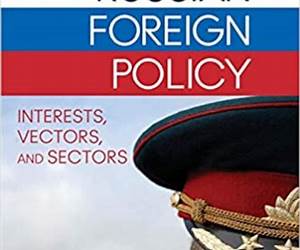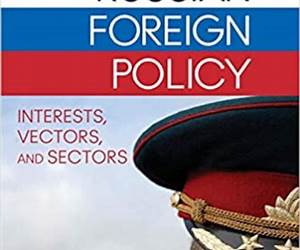Foreign affairs magazine on kindle
In a truly contemporary analysis of Moscow s relations with its neighbors and other strategic international actors Nikolas K Gvosdev and Christopher Marsh use a comprehensive vectors approach dividing the world into eight geographic zones Each vector chapter looks at the dynamics of key bilateral relationships while highlighting major topical issues oil and energy defense policy economic policy the role of international institutions and the impact of major interest groups or influencers demonstrating that Russia formulates multiple sometimes contrasting foreign policies Providing rich historical context as well as exposure to the scholarly literature Russian Foreign Policy Interests Vectors and Sectors offers an incisive look at how and why Russia partners with some states while it counter balances others Russian Foreign Policy Interests Vectors and SectorsIn Russian Foreign Policy Interests Vectors and Sectors Nikolas Gvosdev and Christopher Marsh describe how Russia pursues its goal of the development of the country to guarantee its competitiveness in a globalized world They describe how Russia builds diplomatic trade and security cooperation relationships with many nations from the Western hemisphere to the very south and east of almost all of our continents accept Oceana For every region they describe the historic ties and interest between Russia and the country going back as far as possible to end in the near past Interesting is the game the Soviets played during the Cold War even interesting how they lost relationships afterwards and how they are trying to restore these very same relationships during the Putin era Unfortunately the book ends in 2013 just before the Ukraine crisis A must read for those who try to understand Russia and its current political games English

.

 .
.